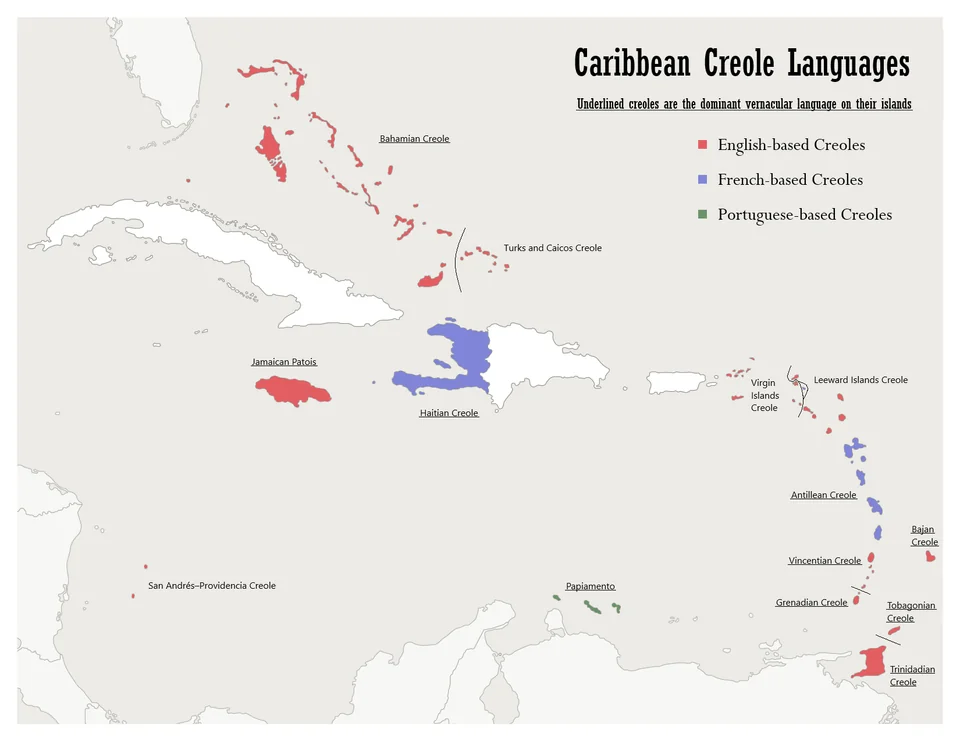-
Creole Languages and Their Significance
Of much greater significance for the survival of African linguistic and communication practices in the territories under consideration is the emergence of the Creole languages, which even today form the first language of the majority of the populations in the Caribbean countries. Among linguists, opinions vary as to the extent to which these languages should be considered variations of the European lexical parent or derivatives from the ideational, cosmological, and linguistic perspectives of West Africa. Whatever the position taken, there can be little controversy, even today, about the impact of the West African linguistic heritage.
African linguistic inputs were seminal in the emergence of the Creole languages of the Caribbean. In some cases, as is the case with Berbice Dutch, a moribund Dutch-lexicon Creole language in Guyana, there is clear evidence of dominance from the Eastern Ijo languages/dialects of the Niger Delta at the core of the lexico-semantic systems of that language. Among the Creole languages of the region with a predominantly English-derived lexicon, Kikongo has been mooted as central to the emergence of Sranan Tongo in Suriname. In Jamaica, the Akan group, Twi in particular, has been documented to have had a high level of lexical input into the Creole language and one creolist lists Fon/Gbe as the dominant source of much of the Haitian lexicon. These seem to suggest that dominance of one group in any territory might have led to the prominence of their linguistic retentions.
-Ian E. Robertson, African Linguistic and Communication Continuities in the Caribbean Diaspora from The Sage Encyclopedia of African Cultural Heritage in North America NonMwenSe and Kwabena2 Comments
NonMwenSe and Kwabena2 Comments-
Actually had the pleasure of meeting the author at a conference. Cool dude.
He is a friend of Ɔbenfo Kimani Nehusi
 1
1 -
Guyana- Ijo. Also, Ijaw (Nigeria)
Suriname- Kikongo (Kongo)
Jamaica- Akan (Ghana)
Ayiti- Fon/Gbe (Benin/Togo)
 1
1
-



